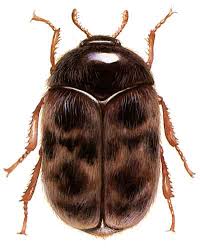Understanding the Khapra Beetle and Its Impact on Agriculture

Introduction
The khapra beetle (Trogoderma granarium) is a notorious pest that poses a significant threat to agriculture globally, particularly in stored grain. With its recent detection in various parts of Canada, understanding its implications is crucial for farmers, policymakers, and citizens alike. The ability of this pest to rapidly reproduce and thrive in various environments has raised alarms about its potential impact on the Canadian agriculture sector, which forms a vital part of the country’s economy.
What is the Khapra Beetle?
The khapra beetle is a small, reddish-brown insect known for infesting grains and seeds, particularly wheat, rice, and corn. The adult beetle measures about 3-4 mm in length, while its larvae are more damaging, capable of consuming large amounts of stored food products. They are primarily located in warm, dry regions, often introducing threats to agricultural sustainability and food security.
Recent Events
In late 2023, the Canadian Food Inspection Agency (CFIA) announced the detection of khapra beetle larvae in a shipment of imported goods in Ontario. This incident has highlighted the growing concern regarding the beetle’s potential establishment in Canada, given that it is already recognized as a pest in several countries, including the United States. The CFIA quickly launched an action plan to contain and eradicate this pest from the affected areas, emphasizing the importance of vigilance in monitoring imports.
Impact on Agriculture
The presence of khapra beetles can lead to severe economic consequences for farmers and the agricultural industry at large. Infestations can result in contamination of food products and significant losses in stored grain. Furthermore, the beetle’s ability to reproduce rapidly means that without timely intervention, it could lead to large-scale infestations, complicating efforts to manage pest control.
Conclusion
As Canada prepares to face the threat of the khapra beetle, it is imperative for agricultural stakeholders to remain aware and proactive. Regular monitoring of agricultural imports, adherence to biosecurity protocols, and educational campaigns will be essential to combatting this pest effectively. Ultimately, the response to the khapra beetle will shape the future of Canadian agriculture and ensure food security in the face of emerging pests. Farmers and consumers alike must stay informed to safeguard the country’s agricultural integrity.









